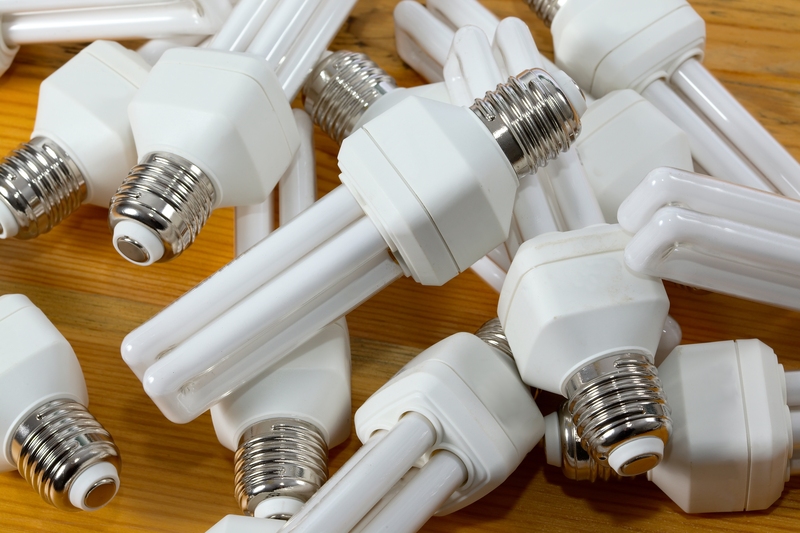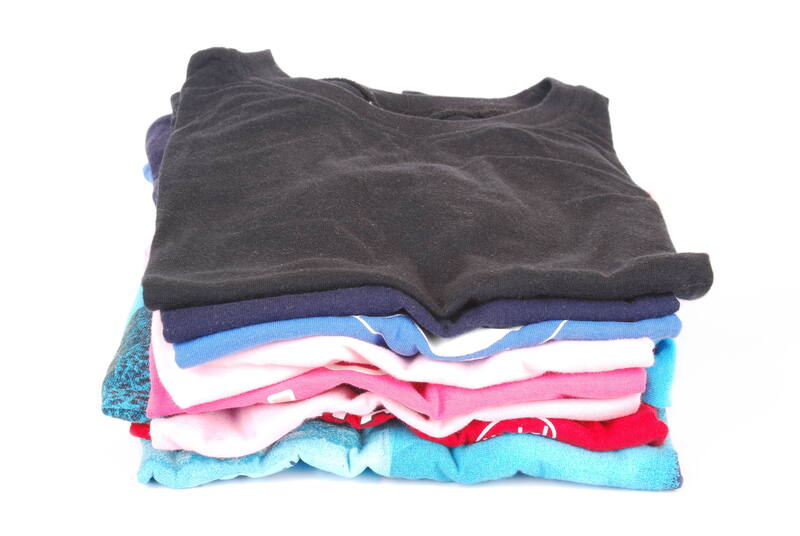Bulky Waste Items: A Homeowner's Guide to Budget-Friendly Disposal
For many homeowners, bulky waste disposal can be a daunting and expensive task. Whether you're clearing out a garage, replacing furniture, or simply addressing accumulated junk, figuring out what to do with oversized household items is crucial for both your wallet and the environment. In this comprehensive guide, we will explore the most cost-effective and environmentally responsible methods to handle bulky waste items. Read on to discover everything you need to keep your home clutter-free--without breaking the bank!
What Are Bulky Waste Items?
First, let's define bulky waste. These are large household items that don't fit into regular trash bins due to their size, weight, or volume. Some common examples include:
- Old mattresses and bed frames
- Sofas, couches, and armchairs
- Refrigerators, washers, dryers, and other appliances
- Closets, tables, dressers, and other furniture
- Bicycles, strollers, and play equipment
- Lawnmowers and garden equipment
- Carpets, rugs, and large textiles
- TVs and bulky electronics (often called "e-waste")
These large trash items are a challenge to dispose of because they usually exceed the weekly garbage service limits and are often restricted from curbside collection. Let's explore the best ways to deal with them.

How to Plan for Bulky Waste Removal
Before you get rid of your bulky household items, it's important to make a disposal plan. Here's a simple checklist:
- Make an inventory. List all the items you wish to remove.
- Check local regulations. Every municipality has rules on what bulky items they'll collect and how often.
- Assess item condition. If it still works or is in fair shape, donating or selling could be an option.
- Compare the costs of various disposal services.
- Schedule your removal in advance to save money and hassle.
Budget-Friendly Options for Disposing of Bulky Waste
There's no one-size-fits-all solution, but here are the most cost-effective bulky waste disposal methods every homeowner should consider:
1. Municipal Bulky Waste Collection
Most cities and towns offer some form of public bulky waste pickup for residents--often once or twice a year or by special appointment. Here are the pros and cons:
- Pros: Usually free or low-cost, and items are picked up curbside.
- Cons: Limited to specific dates, types of items, and may require you to move items to the curb on your own.
Tip: Always check your city's website for bulky waste collection schedules and specific guidelines. Some towns require an advance booking and will charge a minimal fee per item.
2. Donate to Charity Organizations
If your unwanted furniture, appliances, or other large items are still usable, donating could be the most rewarding--and sustainable--disposal option. Many non-profit organizations, like Goodwill, The Salvation Army, and Habitat for Humanity ReStores, accept large household items or offer free pickup.
- Donating saves you money (no landfill fees!) and might qualify for a tax deduction.
- Helps those in need and supports community efforts.
- Reduces waste in local landfills and encourages the reuse of goods.
Tip: Always call ahead to see what items are accepted. Mattresses, for example, may not be accepted due to health regulations, but sets of office chairs or working appliances often are.
3. Sell or Give Away Online
One person's trash is another's treasure! Selling or giving away large unwanted items on platforms like Facebook Marketplace, Craigslist, OfferUp, or Nextdoor is a cost-free way to move them out of your home.
- Quick, local transactions mean less hassle and no shipping costs.
- Many buyers will load and haul away the items themselves--saving you the cost and effort.
- Freecycle groups are a great way to pass items on to neighbors who might need them.
Be safe--always meet buyers in public places or have another adult present when arrangements are made at your home.
4. Recycling and Specialty Disposal
Certain oversized waste items--like electronics, old appliances, or metal furniture--can often be recycled instead of dumped. Here's why responsible recycling is a win-win:
- Diverts materials (like metal, wood, plastic, and glass) from landfills.
- Complies with local e-waste laws and could help you avoid fines.
- Some scrap yards or recycling programs pay for metals or working parts!
Check with your city or local recycling plants for options like:
- Electronics recycling days
- Metal and appliance recycling events
- Drop-off centers for old furniture or mattresses
Pro tip: Never place TVs, computers, or other electronics in regular trash!
5. Renting a Dumpster or Bag Service
For massive cleanouts (renovations, whole-home clearances, or moving out), renting a temporary dumpster or a disposable waste bag service (like Bagster) can be a practical and economical approach. Here's why:
- Convenient for large volumes of debris or multiple bulky waste items.
- Delivered to your driveway, filled at your pace, and then picked up for a flat fee.
- Bagsters are suitable for tight spaces or small-scale jobs (holds up to 3,300 lbs).
Cost-saving tip: Share the dumpster or bag fee with neighbors! Organize a "neighborhood clean-up" and split services for even lower rates.
6. Hire a Junk Removal Service
For a hassle-free but pricier solution, hiring a professional junk removal company will ensure all your bulk waste is removed safely. Popular companies such as 1-800-GOT-JUNK? or local services offer:
- Labor included--they'll remove items from anywhere in your home.
- Sorting and recycling options to minimize landfill impact.
- All-inclusive pricing--ask for a detailed quote upfront to avoid surprises.
While not always the "budget-friendly" solution, it can be worth it for those with limited time, physical ability, or transportation.
Saving Money: Tips for Affordable Bulky Waste Disposal
Reduce, Reuse, Recycle
The less you throw away, the less you'll pay! Employ the golden rule of reduce, reuse, recycle:
- Repurpose old items for new uses in the garden, workshop, or porch.
- Disassemble larger furniture for easier (and possibly cheaper) disposal.
- Recycle whenever possible--some metals and plastics have cash value.
Time Your Disposal Right
Some cities offer a limited number of free bulky garbage pickups each year. Plan your clean-out around these dates or recycle days for maximum savings.
Bulk-Item Drop-Off Events
Look for community bulk trash drop-off events. These local efforts may allow for free or cheap dumping of items like furniture, mattresses, and debris a few times a year.
Break Down Items Yourself
Take apart large furniture or appliances (where safe and possible). This minimizes space and may allow some materials to go into your regular waste or recycling--potentially avoiding extra fees.
Leverage "Move-Out" or "Spring Cleaning" Giveaways
If you're moving, coordinate with neighbors or buy-nothing groups. A driveway giveaway with a big "FREE" sign often helps large, usable items disappear fast!
What Not to Do: Common Mistakes in Bulky Waste Disposal
- Do NOT leave items illegally at the curb. You risk fines and neighborhood complaints.
- Do NOT dump waste in alleys, vacant lots, or unauthorized areas.
- Do NOT place electronics, mattresses, or appliances in regular bins unless permitted. These may leach harmful chemicals or violate local waste ordinances.
- Ask your waste hauler before disposing of specialty items--rules change often.
When to Call in the Pros
Sometimes, the cheapest solution is not always the best. Call a reputable junk hauler or consult your city's waste authority if:
- You have items containing hazardous materials (e.g., refrigerators with refrigerant, electronics, paints).
- You are physically unable to move large items yourself.
- You're on a tight timeline or facing a city warning.
- There's a very large amount of debris from renovation, eviction, or estate cleanup.

Frequently Asked Questions: Bulky Waste for Homeowners
Can I leave my old sofa on the curb?
Only if your city allows it and you've followed the rules for bulky waste removal! Many towns require a scheduled pickup or limit the types of items picked up curbside.
What are the cheapest methods for large item disposal?
The cheapest way: sell, donate, or give away. Next cheapest is using city-sponsored free bulk pickups or community drop-off events. Renting a dumpster costs more, but is sometimes necessary for big jobs.
How do I prepare items for pick-up?
Remove all personal belongings, disassemble if possible, and keep the items dry. Secure loose items and check for parts (like refrigerator doors) that must be removed per local rules.
Are there items that require special disposal?
Yes! Appliances with refrigerant, electronics, mattresses, or anything containing hazardous material may require separate handling. Contact your local waste authority for guidance.
What if I miss the city's bulk pickup day?
Store your bulky items securely until the next pickup, use a private hauler, or inquire about drop-off options. Avoid illegal dumping at all costs!
Conclusion: Dispose of Bulky Waste the Smart Way
Getting rid of large household waste doesn't have to be stressful or expensive. By taking stock of your bulky waste items, leveraging community resources, and exploring budget-friendly disposal options, you'll save money, time, and hassle--while reducing your environmental footprint. For the most up-to-date tips and programs, always check your city or county's official waste management website.
With informed planning, you can turn bulky waste disposal into an efficient, affordable, and even rewarding process for your home, community, and the planet!
Ready to take action? Start planning your next big clean-out with these budget-wise strategies for bulky waste removal today!
